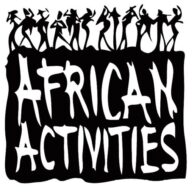Some men were killed outright in the collision; others were trapped. Oral history records that the men met their fate with great dignity. An interpreter, Isaac Williams Wauchope calmed the panicked men by raising his arms aloft and crying out in a loud voice:
“Be quiet and calm, my countrymen. What is happening now is what you came to do…you are going to die, but that is what you came to do. Brothers, we are drilling the death drill. I, a Xhosa, say you are my brothers…Swazis, Pondos, Basotho…so let us die like brothers. We are the sons of Africa. Raise your war-cries, brothers, for though they made us leave our assegais in the kraal, our voices are left with our bodies.”
The large silence about this tragedy has been dramatically heightened as Southampton is a city so obsessed with the Titanic with pubs, museums and plaques at every turn. The unveiling of the memorial at the 100th anniversary was an important step. Here at African Activities we are great believers in the power of story to help us bridge barriers and in the power of reconnecting with our ancestors to heal our wounds. The play the SS Mendi Dancing the Death Drill opens on July the 10th and promises to be a riveting story with the power to expose and heal old wounds.
To commemorate the opening of the play we are pleased to announce that Jali Fily will be playing Kora to entertain the delegates and that I will be privately pouring libation to revere and remember the men that died so close to my current home town.

0 Comments